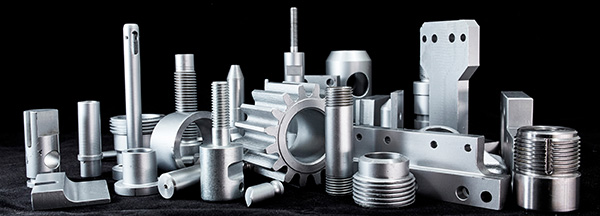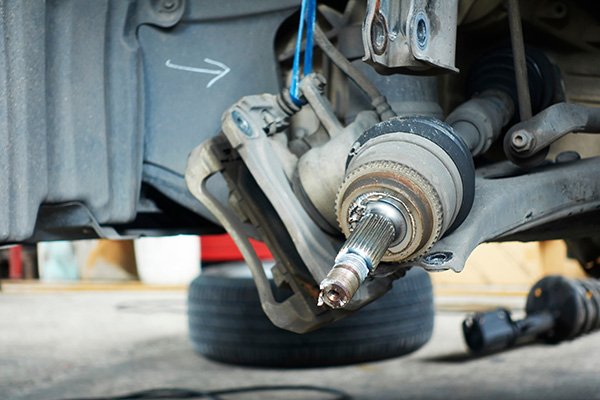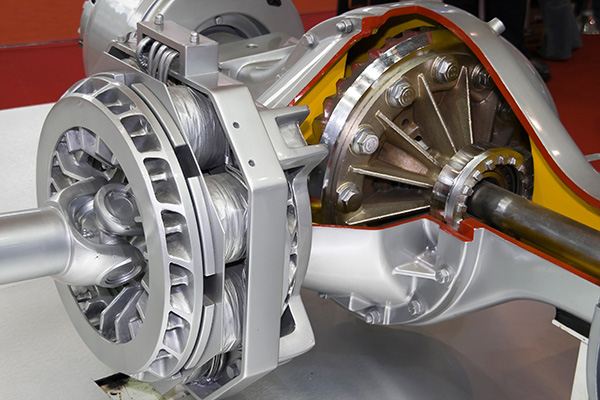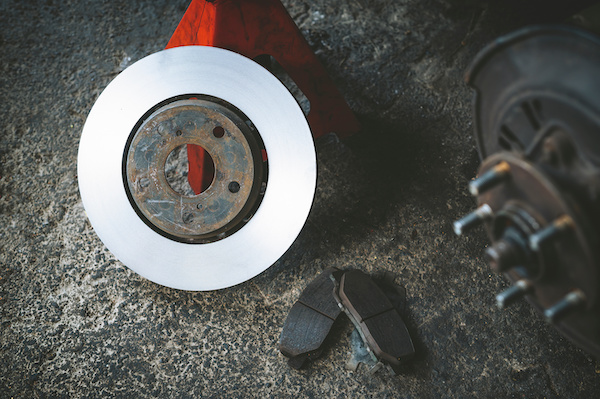Posted on 5/29/2024

Certain behind-the-scenes processes are indispensable for ensuring your vehicle's optimal performance and longevity. Among these, machine services are paramount but often overlooked aspects of automotive maintenance and repair. We will explain machine services and their role in car repair, shedding light on their significance and how they contribute to keeping vehicles running on the road. What Are Machine ServicesMachine services encompass a range of specialized procedures carried out by skilled technicians to refurbish, repair, or customize various components of a vehicle's engine and other mechanical systems. From cylinder head resurfacing to crankshaft grinding, these services are designed to restore parts to their original specifications or enhance their performance beyond factory standards. Enhancing Engine Performance One of the primary functions of machine services in car ... read more
Posted on 4/28/2024

Have you noticed an odd vibration or strange noise coming from your car? Could it be a sign that your axles need attention? We'll explore the common signs that indicate your car might need axle repair and what you can do about it. The Role of Axles Your car's axles play a crucial role in the functionality of its wheels. Axles transfer power from the transmission to the wheels, allowing them to rotate and propel the car forward. Without properly functioning axles, your car would struggle to move, making them a vital component of your vehicle's drivetrain system. Common Signs of Axle TroubleStrange Noises One of the most common indicators of axle issues is strange noises coming from your car, such as clicking, clunking, or grindi ... read more
Posted on 3/28/2024

Have you ever wondered what makes your car turn smoothly around corners or navigate effortlessly through varying road conditions? Behind the scenes, there's a crucial component working tirelessly to ensure your vehicle's stability and maneuverability - the differential. Unraveling the Mystery: What Exactly is a Differential? The differential is a mechanical device that facilitates the rotation of your car's wheels at varying speeds while ensuring road grip. It is located within the axle assembly and plays a crucial role in distributing power from the engine to the wheels. This allows the wheels to turn at different speeds as required, especially during cornering. Why Does Your Car Need a Differential? The setup may work acceptably on a straight road when driving a car in a straight line with all wheels rotating at the same speed. However, encountering corners or uneven surfaces presents a problem. Without a differential, the whee ... read more
Posted on 2/26/2024
.jpeg)
The dashboard of your car is like a communication hub, providing vital information about the vehicle's health and status through various symbols and lights. While some dashboard lights, like the seatbelt reminder or the fuel indicator, are instantly recognizable, there are others that are less common and can be somewhat perplexing. 1. Engine Temperature Warning Light Often depicted as a thermometer submerged in liquid, this light doesn't just suggest that your engine is getting a bit warm; it's warning you that your engine is overheating. If this light comes on, it's crucial to pull over as soon as it's safe to do so and turn off the engine to avoid severe damage. Overheating can be caused by several issues, including lo ... read more
Posted on 1/24/2024
.jpeg)
Have you ever wondered about the magic behind the power delivery of your vehicle? It is either turbocharged or naturally aspirated. The differences between the two are quite simple, as you will learn below, so buckle up as we navigate through the heart of your car's power, uncovering the secrets that drive your driving experience. Naturally Aspirated Engines In the case of a naturally aspirated engine, it works without any extra help from a turbocharger or supercharger. It simply passes the air through the intake and filter, directly mixing them with fuel to make power. This type of engine provides a smooth and predictable driving experience that's great for everyday use. Turbocharged Engines Now, shift gears to the turbocharged engine – the speedster with an extra boost up its sleeve. Turbocharging introduces a forced induction system that compresses the incoming air before it enters the engine. This compresse ... read more
Posted on 12/30/2023
.jpeg)
Understanding the nuances of tires can be as challenging as deciphering an unfamiliar language. Yet, selecting the right tires for your vehicle is vital not only for performance but also for safety. With a multitude of sizes, types, and brands on the market, it's essential to arm yourself with knowledge to make an informed decision. This guide will demystify tire jargon and help you pick the perfect set for your ride. The Alphabet Soup of Tire Sizes First things first, let's tackle tire sizes. When you look at a tire sidewall, you'll find a series of numbers and letters that might seem cryptic at first glance. These markings hold key information about the tire's size, type, and performance capabilities. For example, you might see something like "P225/50R16 91V." Broken down: "P" indicates it's designed for passenger vehicles. "225" is the width of the tire in millimeters. "50" ... read more
Posted on 11/27/2023
.jpeg)
The transmission, along with the engine, is the main character of your vehicle, changing gears and delivering power to the wheels with such seamless precision that we often take it for granted. But when trouble brews within this complex piece of machinery, it's crucial to catch it early. Ignoring these pleas for help can lead to a breakdown at best and a hefty repair bill at worst. So, let's delve into the seven must-know signs that your car's transmission is crying out for attention. 1. Skipping or Missing Gears When your car refuses to shift into gear or hesitates while doing so, consider this a red flag. Whether you're driving an automatic or manual, such resistance is a clear indicator that your transmission is experiencing internal strife. 2. Dancing RPMs Watch out for your tachometer needle playing hopscotch when you accelerate. If the revolutions per minute (RPMs) jump higher than expected without an increase in speed ... read more
Posted on 10/30/2023

Imagine a split-second response that can mean the difference between life and death during a sudden impact. The airbag, an essential safety feature in modern vehicles, serves as a critical safeguard, providing a cushioning effect to protect occupants from severe injuries during collisions. Understanding how this vital component operates, when it requires servicing, and why timely maintenance is crucial can ensure that your car's airbag remains a reliable life saving device. How Does an Airbag Work The airbag system is an intricate network of sensors, control units, and, of course, the airbags themselves, strategically placed throughout the vehicle's interior. In the event of a collision, the sensors detect the sudden deceleration, prompting the airbag control unit to trigger a rapid inflation of the airbags. This inflation process occurs ... read more
Posted on 9/30/2023
.jpeg)
As you slip behind the wheel of your car, you embark on a journey, whether it's a daily commute or a road trip adventure. While you're focused on reaching your destination, your vehicle silently bears the brunt of your driving habits. It's a symbiotic relationship, and understanding how your actions affect your faithful ride can make a world of difference, mainly avoiding problems and repairs. 1. Neglecting Regular Maintenance Our first pit stop on the journey of destructive driving habits is neglecting regular maintenance - a surprising amount of people ignore or simply forget about regular shop visits. Think of it as skipping doctor's appointments and never getting a check-up. Your car needs periodic attention to stay healthy. Skipping oil changes, ignoring the check engine light, or neglecting tire rotations can lead to costly repairs down the road. 2. Overloading Your Vehicle Just as carrying excessive weight can strain yo ... read more
Posted on 8/11/2023

August marks Brake Safety Awareness Month, a crucial reminder of the importance of maintaining your vehicle's braking system for the safety of you, your passengers, and others on the road. Your brakes are your vehicle's most vital safety feature, and their proper operation is essential for preventing accidents and ensuring an undisturbed driving experience. Here's why brake maintenance should be a top priority this month and beyond! Stay in Control Your vehicle's brakes are responsible for bringing you to a safe stop, even in emergency situations. Regular brake inspections and maintenance help ensure that your brakes respond promptly and effectively, allowing you to maintain control and avoid collisions. Worn Brake Pads One of the most common brake issues is worn brake pads. Over time, these pads become thin, reducing their ability to grip the brake rotor and slowing down your vehicle. Regular brake inspections can detect worn pads early, preventing potential damage ... read more